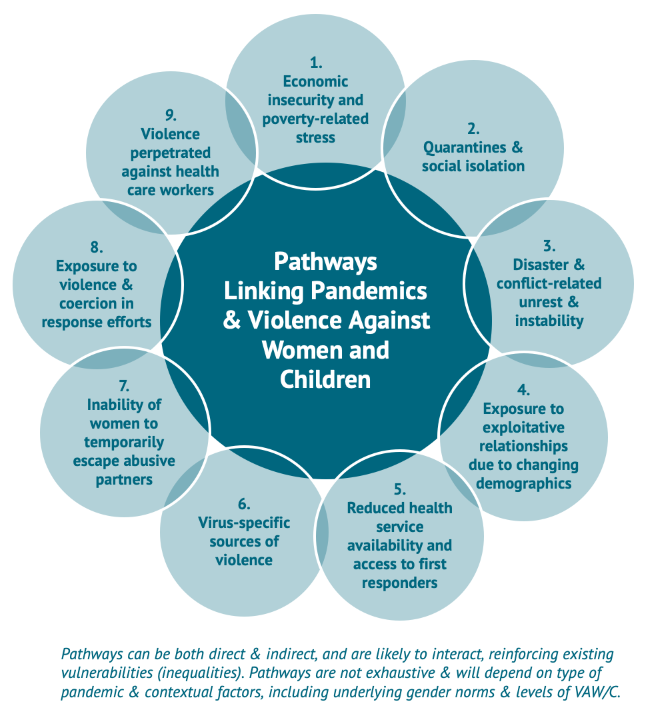Gender based violence: Social And Economic Issue
Relevance: Challenges of Social Transformation: Poverty, deprivation and inequalities. Violence against women. G.S paper I: Society and social Issues
INTRODUCTION
Gender-based violence is not just a social issue. It is also an economic issue that directly affects the value of assets within capital markets.
Reducing GBV is an investment in financial stability. During times of crisis, this becomes even more true.
With the world staying home due to COVID-19, we see a rise in gender-based violence (GBV), including domestic violence.
Recently, the UN reported that Lebanon and Malaysia, for example, have seen the number of calls to helplines double since this time last year; in China they have tripled, and in Australia, search engines are seeing the highest number of searches for domestic violence help in the past five years.
As the global pandemic of violence against women and girls is addressed with the combined efforts of many organizations and individuals – recognizing specifically the many women’s networks on the frontlines – it is also important to focus on the opportunities COVID-19 presents for economic and financial systems to build solutions and mitigate violence as active partners.

ANALYSIS
Finance is one of the most powerful systems on earth, and investment decisions about private and public funds are based on an analysis of risk and return over time.
UNICEF and Criterion Institute have been exploring pathways to engage systems of finance in addressing GBV in crises, on how GBV can be understood as material to investment decision-making, including several actions investors can implement now.
Gender-based violence is not just a social issue. It is also an economic issue that directly affects the value of assets within capital markets.
Reducing GBV is an investment in financial stability. During times of crisis, this becomes even more true.
For example, when nations need financial assistance, sovereign or government debt is usually issued by a nation to help with its redevelopment. By incorporating gender-sensitive loan terms and conditions in debt investments or in loan-restructuring negotiations, multilaterals such as the World Bank and the International Monetary Fund can be a powerful leverage to address GBV within receiving countries.
Second, there is a growing number of innovative investment opportunities for private or blended capital (a mix of grants, equity investments, and bank loans) related to shifting harmful GBV outcomes.
Infrastructure projects that help with the design of lighting and transportation can have a direct impact on women and girls’ sense of security, their vulnerability to GBV, and their social mobility more broadly.
And as digital communication increases, tech investment opportunities such as protecting the private data of vulnerable individuals like children and GBV survivors is critical.
Finally, supporting nations at the forefront or onset of natural disasters and crises must consider pre-existing rates of GBV or their propensity to increase. For example, disaster-risk finance and insurance solutions help create more resilient economic development while also protecting vulnerable lives and livelihoods.
Insurance policies that quickly offer liquid assets, like tax refunds or certificates of deposits, to consumers are essential to both long-term economic stability and building resilience. Making financial resources available when they are needed decreases the likelihood of GBV increasing due to mounting economic pressures within households, as we are seeing with COVID-19 now.
These initial ideas offered by this collaboration between Criterion Institute and UNICEF are only the start of the imagination that can be deployed by using the power of finance, as another tool in efforts toward preventing and responding to GBV.
As the finance industry gathers to discuss overall economic impact, and the role of impact investing in the age of COVID-19, UNICEF and Criterion Institute are committed to bringing the material risks of GBV into the investment discourse. There has never been a more crucial time to expand the partners looking at the pandemic of GBV, including private and government investment mechanisms.
For more such notes, Articles, News & Views Join our Telegram Channel.
Click the link below to see the details about the UPSC –Civils courses offered by Triumph IAS. https://triumphias.com/pages-all-courses.php

